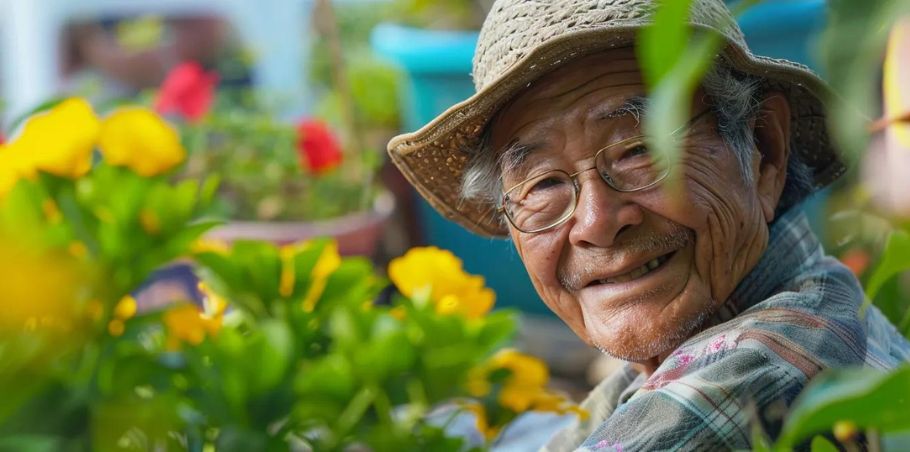What if the secret to youth wasn’t nestled in a fountain somewhere, but woven into the choices we make every day? The quest to preserve vitality and mental sharpness as we age is as old as time itself. With breakthroughs in science and a deeper understanding of lifestyle impacts, today’s generations have the tools to age more gracefully than ever before. Uncover the secrets to living a vibrant life through a symbiotic blend of wellness strategies. Keep reading to discover time-honored tips that can hold the key to longevity and cognitive vibrancy.
Contents
Dietary Choices That Promote Longevity and Mental Acuity
Diet plays a crucial role in defying aging, with a focus on balanced nutrition rich in fruits, vegetables, whole grains, and lean proteins. Antioxidants in plant-based foods help combat oxidative stress and reduce the risk of chronic diseases, while omega-3 fatty acids, found in fish and nuts, are vital for maintaining cognitive function. Conversely, diets high in refined sugars and saturated fats can accelerate cognitive decline, underscoring the need for careful dietary choices.
The Mediterranean and MIND diets, known for their emphasis on vegetables, healthy fats, and moderate wine consumption, are linked to longer life and better brain health. Health professionals and researchers of NAD highlight these diets for their potential to slow cognitive aging and promote overall wellness, making nutrition education a key element in aging well.
Unveiling the Science of Aging Gracefully
Scientists are studying the aging process, focusing on cell senescence and DNA repair. They are developing interventions to decelerate these processes and promote cellular health. Telomeres, protective structures at the end of chromosomes, are crucial in aging. Lifestyle choices like stress management and nutrition can impact telomere length, extending healthspan.
Systemic inflammation is a key factor in age-related decline, which can be mitigated through anti-inflammatory diets and regular physical activity. Personal agency in health trajectories is essential. The science of aging also focuses on preserving the quality of life, with brain health strategies fortifying cognitive function. By integrating lifestyle adaptations, we can defy traditional aging stereotypes and maintain our zest for life.
Physical Activity and Its Role in Preserving Youthfulness
Physical activity is a vital component of a healthy lifestyle, as it supports the heart, lungs, muscles, and bones, combating the decline that can occur with aging. It can be tailored to individual needs and abilities, and can also stimulate endorphin release, fostering a positive mood and resilience against stress. Exercise also boosts circulation, enhancing the delivery of nutrients and oxygen to tissues, vital for maintaining youthfulness.
Beyond physical robustness, exercise is also beneficial in cognitive health, stimulating brain regions involved in memory and executive function, and reducing the risk of cognitive impairment in older adults. Health providers and aging specialists encourage consistent exercise as a cornerstone of a life-extending regimen, and practices like yoga and tai chi can offer low-impact options that combine physical wellness with meditative mindfulness.
Cultivating a Positive Mindset to Combat Aging

The adage “mind over matter” is vividly illustrated in aging. Research shows that a positive outlook can slow cognitive decline and potentially extend lifespan. Embracing a growth mindset, which fosters ongoing learning and adaptability, promotes intellectual engagement and personal fulfillment. This could mean pursuing an associates degree accounting or mastering a new language, both of which can benefit cognitive health.
Positive thinking also influences lifestyle choices that support healthy aging. Believing in the impact of our actions encourages us to engage in wellness-promoting activities, leading to a vibrant life shaped by optimism. Practicing gratitude regularly helps reduce stress and depression, contributing to overall better health and longevity.
Integrating Social and Intellectual Stimuli for a Sharper Mind
Social interactions significantly influence cognitive sharpness, as they delay memory decline and foster a sense of purpose. Activities like volunteering and club participation can be powerful mental simulators. Intellectual stimulation is crucial for maintaining mental agility, as engaging in intellectually challenging activities like puzzles, reading, and problem-solving fosters neural plasticity, building cognitive reserves that buffer against age-related decline.
Utilizing technology, such as brain-training apps and online courses, can help maintain mental sharpness. However, it’s essential to integrate these technologies in a balanced way, complemented by real-world experiences that challenge our understanding. Engaging in meaningful conversations and debates with peers also stimulates thought processes, enhancing cognitive flexibility and memory. Creating an environment rich in diverse intellectual and social stimuli is essential for maintaining sharp minds.
Altogether, living a vibrant life as we age involves an interplay of smart lifestyle choices, from diet and exercise to intellectual and social engagement. It’s a composite approach that considers the body, mind, and spirit, crafting a personal blueprint for aging not just gracefully, but vibrantly too.

Sarah Wilson, an accomplished writer and seasoned blogger, weaves compelling narratives that transport readers to new and uncharted worlds. With a talent for vivid storytelling and thoughtful insight, her work leaves a lasting mark, enchanting both the imagination and intellect.
